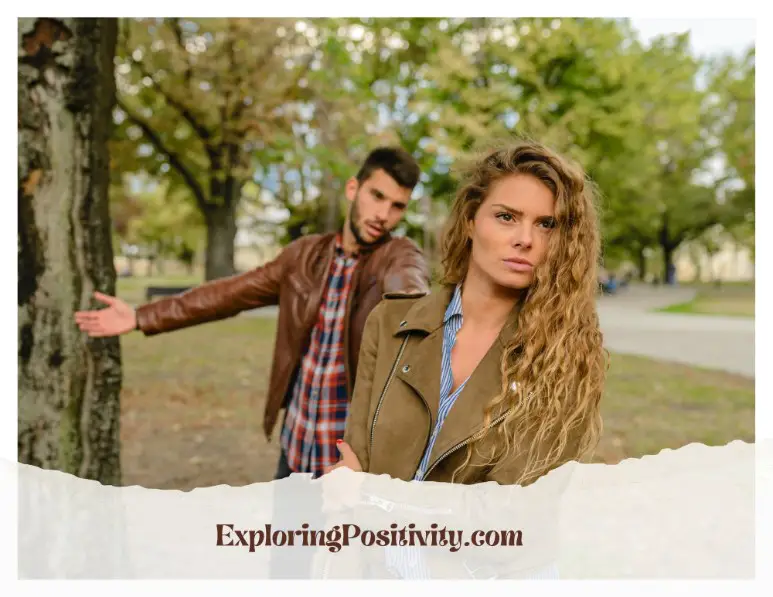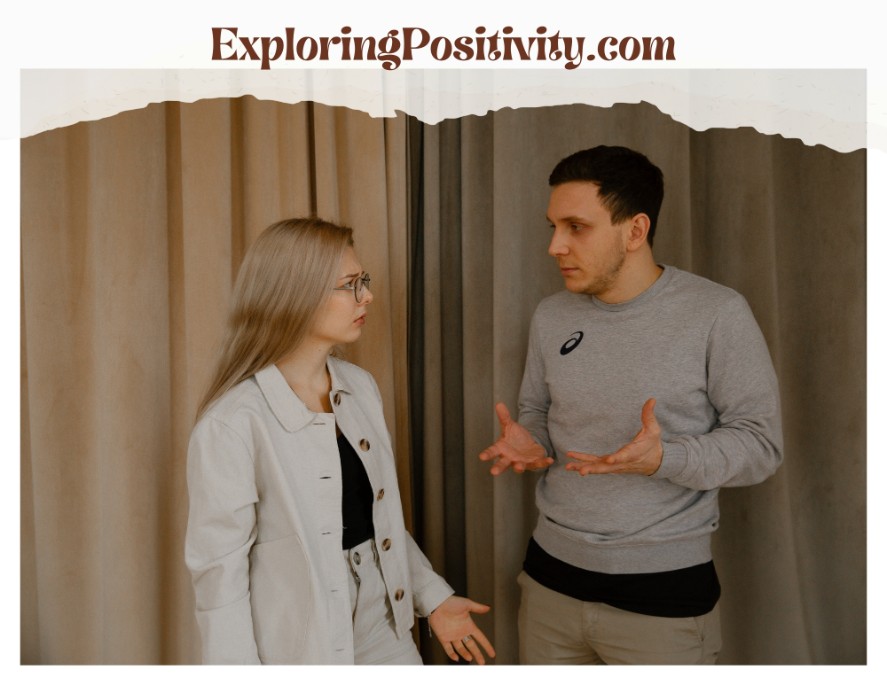Addiction is a complex and pervasive issue that can take many forms, affecting people of all ages, backgrounds, and walks of life. It can be characterized by a persistent and compulsive drug-seeking behavior, often leading to physical and psychological dependence. Addiction doesn’t just harm the individual struggling with it, but also their loved ones and close relationships.
When someone is battling addiction, bonds between family members and friends can deteriorate, leading to a loss of trust and stability. It can be challenging to recognize the extent of the damage addiction may inflict on personal relationships.
Therefore, exploring the impact of addiction on relationships is of utmost importance to help prevent further harm and facilitate the road to recovery. In this article “How addiction ruins relationships” we will delve deeper into “How Addiction Ruins Relationships” The Devastating Effects of Addiction on Relationships”.
Defining Addiction
Addiction is a complex phenomenon that can take various forms, from drugs and alcohol to gambling and food. Although addiction is an individual issue, it can have severe effects on relationships.
This is especially true when the addiction develops over time and begins to take over the individual’s thoughts, behaviors, and priorities.
“While addiction may seem insurmountable, remember that every step towards recovery strengthens your relationships and brings hope back into your life.”
It becomes challenging for them to maintain healthy relationships with their loved ones as their addiction consumes their attention and makes them prioritize their substance or behavior of choice over everything else.
Thus, addiction ruins relationships by creating a divide between the individual and their loved ones, making them feel alone, and causing them to struggle with trust, communication, and intimacy.

Types of Relationships Affected by Addiction – How Addiction Ruins Relationships
Family Relationships
One of the most common types of relationships that are affected by addiction is family relationships. Addiction can cause a great deal of stress and conflict within a family, as well as lead to financial and legal problems.
Additionally, addiction can strain relationships between parents and children, siblings, and extended family members.
Friendship Relationships
Friendship relationships are also often affected by addiction. Addiction can cause friends to drift apart, as well as lead to conflict and resentment.
Additionally, addiction can make it difficult for people to maintain healthy friendships, as they may be more likely to engage in risky behaviors or become isolated from their friends.
Relationship with Self
People who are struggling with addiction often have a poor relationship with themselves. They may feel shame, guilt, and self-loathing as a result of their addiction. Additionally, people with addiction often have difficulty accepting themselves and may feel like they are not good enough or worthy of love and respect.
Romantic Relationships
Romantic relationships are often negatively affected by addiction. Addiction can cause couples to fight more frequently, leading to feelings of resentment and bitterness.
Additionally, addiction can make it difficult for couples to communicate openly and honestly with each other, which can further damage the relationship.
Workplace Relationships
Addiction can also affect workplace relationships. People who are struggling with addiction may have difficulty keeping up with their work responsibilities, which can lead to conflict with co-workers. Additionally, addiction can make it difficult for people to focus on their work tasks and meet deadlines.
Signs and Symptoms of Addiction in Relationships
- One of the signs that you or your partner may be addicted is if you find that you are spending more and more time using the substance or engaging in the behavior.
- Another sign may be if you or your partner start to neglect other important aspects of your life in order to use the substance or engage in the behavior.
- If you or your partner begin to experience financial problems as a result of using the substance or engaging in the behavior, this may be another sign of addiction.
- If you or your partner start to lie about using the substance or engaging in the behavior, this is another sign that there may be a problem.
- If you or your partner start to withdraw from family and friends, this may be another sign of addiction.
- If you or your partner experience changes in mood or behavior when not using the substance or engaging in the behavior, this may be another sign that there is a problem.
- If you or your partner begin to experience physical health problems as a result of using the substance or engaging in the behavior, this is another sign that addiction may be present.
- If you or your partner continue to use the substance or engage in the behavior despite negative consequences, this is another sign that addiction may be present.
- If you or your partner feel unable to control use of the substance or engagement in the behavior, this is another sign that addiction may be present.
Emotional Impact of Addiction on Relationships
Addiction can have a devastating impact on both the person struggling with substance abuse and those closest to them.
How Addiction Ruins Relationships is a topic that is all too familiar for many individuals who have experienced the emotional turmoil that comes with it. Trust issues and betrayal can arise when one partner breaks their promise to stop using drugs or alcohol.
The emotional instability and mood swings that often come with addiction can make it difficult for the individual to maintain a stable relationship.
This can lead to increased conflicts and arguments, as the other partner struggles to cope with the unpredictable behavior and the emotional toll that addiction can take on both of them.
Overall, addiction can have a profound emotional impact on relationships, and it is important to seek support and guidance to navigate these challenges.
Physical and Mental Health Consequences – How Addiction Ruins Relationships
Addiction has devastating effects on relationships, both physically and mentally. People who are addicted to drugs or alcohol often experience stress-related illnesses, such as high blood pressure, heart disease, and diabetes.
“The path to healing relationships begins with acknowledging addiction, embracing self-forgiveness, and committing to a brighter, addiction-free future.”
They may also engage in co-dependent and enabling behaviors that worsen their addiction and harm their loved ones. The psychological trauma and emotional distress that addiction causes can lead to mental health concerns like anxiety, depression, and post-traumatic stress disorder.
These effects can take a heavy toll on relationships and cause irreparable damage, leaving people feeling isolated and alone. It’s crucial to seek help for addiction to prevent such consequences and start the journey towards healing and recovery.
Financial Impact
Addiction can be a destructive force in relationships, causing financial instability, debt, and economic hardships. The financial impact of addiction can lead to lost jobs, missed payments, and mounting debts that can feel overwhelming.
These financial difficulties can cause significant stress and tension within relationships, leading to arguments and resentment. In some cases, addiction can even be the sole cause of a relationship’s breakdown, particularly where one partner has become financially dependent on the other.
If you or a loved one is struggling with addiction, it’s essential to seek help as soon as possible to mitigate the financial impact and start on the path to recovery. Remember, addiction doesn’t have to ruin relationships – with the right support, healing and rebuilding can begin.

Effects on Intimate Relationships – How Addiction Ruins Relationships
Addiction can have devastating effects on intimate relationships, leading to a loss of connection and difficulties with intimacy.
This can be due to the addict’s preoccupation with obtaining and using substances, which can lead to neglect of their partner’s emotional needs. It can also lead to infidelity and dishonesty, as the addict may prioritize their addiction over being honest and faithful in the relationship.
Physical and sexual abuse may also occur, as the addict’s behavior becomes increasingly unpredictable and dangerous. Overall, addiction can severely damage the trust and intimacy that are essential to a healthy relationship, ultimately leading to the breakdown of the relationship.
Impact on Parent-Child Relationships
Addiction can have a devastating impact on parent-child relationships. One of the ways in which this plays out is through parental neglect and abandonment. When addiction takes hold, parents may struggle to prioritize their children’s needs, leading to emotional distance and broken bonds.
This can cause significant emotional trauma in children, who may feel unimportant or unwanted by their addicted parent. In addition, addiction can interfere with healthy development, both in terms of a child’s physical and emotional well-being.
The effects of addiction can be long-lasting, leading to strained relationships and lost opportunities for healing and growth. When addiction ruins relationships, the entire family can suffer, making it all the more important to seek help and support before irreparable damage is done.
Sibling Relationships: Strained Bonds
When addiction is present, it can create strained bonds between siblings that can be hard to repair. Increased tension and rivalry are common, as siblings may compete for attention or resources from their parents.
In some cases, role reversals may occur where the younger sibling takes on the role of the older, assuming responsibilities and caring for their addicted sibling. Siblings may feel neglected or misunderstood if their parents are focused on addressing the addiction.
“Rebuilding relationships after addiction requires patience and understanding. With perseverance, you can create a foundation of trust and love stronger than ever before.”
Over time, these patterns of behavior can lead to long-term estrangement, where siblings may lose touch or become distant from one another.
How Addiction Ruins Relationships? Addiction can ruin relationships in so many ways, and siblings are no exception. It takes a concerted effort to repair these strained bonds and rebuild trust and understanding.
The Erosion of Friendships
When it comes to addiction, the toll it takes on individuals is well-documented. But one aspect that often goes overlooked is how addiction can erode friendships and other close relationships. Trust and loyalty are commonly lost as addiction leads to broken promises and unreliable behavior.
As addiction worsens, social support networks deteriorate, leaving individuals with fewer people to turn to during times of need. Self-isolation and loneliness are also common outcomes, as individuals struggling with addiction may distance themselves from loved ones in order to hide their struggles.
Overall, it’s clear that addiction can have devastating effects on relationships, often leaving individuals struggling to rebuild what was lost.

The Cycle of Codependency
The Cycle of Codependency is a common occurrence when dealing with addiction. It is a pattern of behavior that enables an addict to continue their substance abuse. This behavior manifests in enabling behaviors and rescuing.
When someone is codependent, they ignore their own needs, and instead focus on the needs of the addict. This can lead to the loss of self-identity and boundaries. Those who are codependent often seek external validation and approval which only perpetuates the cycle.
The devastating effects of addiction on relationships can be seen through this cycle of codependency. It’s important to recognize these patterns in order to break the cycle and seek help in the recovery process.
Seeking Help: Intervention and Treatment
Addiction can take its toll on any relationship. Whether it be with a spouse, family member, or friend, the devastating effects of addiction on relationships can be irrevocable. However, seeking help through intervention and treatment can be a game-changer.
One effective way to assist someone suffering from addiction is to stage an intervention. This allows loved ones to come together as a team and express their concerns while also offering support and resources for rehabilitation and therapy options.
While it can be challenging to overcome barriers to seeking help, it is crucial to remember that recovery is possible, and one should never give up on their loved one. Seeking help for addiction is an act of selflessness and compassion that will undoubtedly have a positive impact on any relationship.
Rebuilding and Repairing Relationships
Addiction can have a devastating effect on relationships, but rebuilding and repairing those relationships is possible with trust, open communication, and setting healthy boundaries. Couples therapy and family counseling can be helpful in regaining the connection and trust that may have been lost.
“Addiction may have caused damage, but remember that you hold the power to rebuild what was broken. Let love, compassion, and determination guide you on this transformative journey.”
It’s important for both parties to listen actively and share their feelings honestly to begin mending the relationship.
Setting boundaries and expectations can help establish a foundation for rebuilding the relationship and should be done with love and respect. With time, effort, and dedication, a relationship that was once broken by addiction can be repaired and become stronger than ever before.

Support for Affected Individuals
Addiction can have devastating effects on relationships, leaving loved ones feeling overwhelmed and helpless. However, there is support available for affected individuals.
Al-Anon and Nar-Anon support groups offer a safe and understanding space for family members and friends to share their experiences and receive support. Additionally, individual counseling and therapy can help individuals process their emotions and develop coping strategies.
It is also important for affected individuals to prioritize their own self-care practices, such as exercise or mindfulness, to maintain their own well-being during difficult times.
With the right tools and support, those affected by addiction can navigate the challenges it brings and find a path towards healing and recovery.
Conclusion
In conclusion, it is evident in the article “How addiction ruins relationships” that addiction has a devastating impact on relationships. The effects of addiction can be long-lasting and can result in broken families, lost trust, and shattered dreams.
Addiction can cause a person to prioritize their substance use over their loved ones, leading to feelings of neglect and abandonment. However, hope is not lost. Seeking help and support can be a crucial step in repairing the damage caused by addiction.
Whether it is therapy, support groups, or rehabilitation, there are resources available to those struggling with addiction and their loved ones.
Remember, recovery is a journey, and it is never too late to seek help and start the healing process for yourself and your relationships. Let us all work towards a future where addiction no longer ruins relationships.
How does addiction affect relationships?
Addiction can strain relationships by causing trust issues, communication breakdowns, emotional distancing, financial instability, and neglect of responsibilities.
Can addiction be a reason for the breakdown of a relationship?
Yes, addiction can be a significant factor in relationship breakdowns due to the toll it takes on individuals’ mental, emotional, and physical well-being, leading to strained dynamics and potential loss of trust.
Can relationships recover from addiction?
With appropriate support and professional help, relationships can recover from addiction. It requires dedication, open communication, therapy, and a commitment to sobriety and rebuilding trust.



